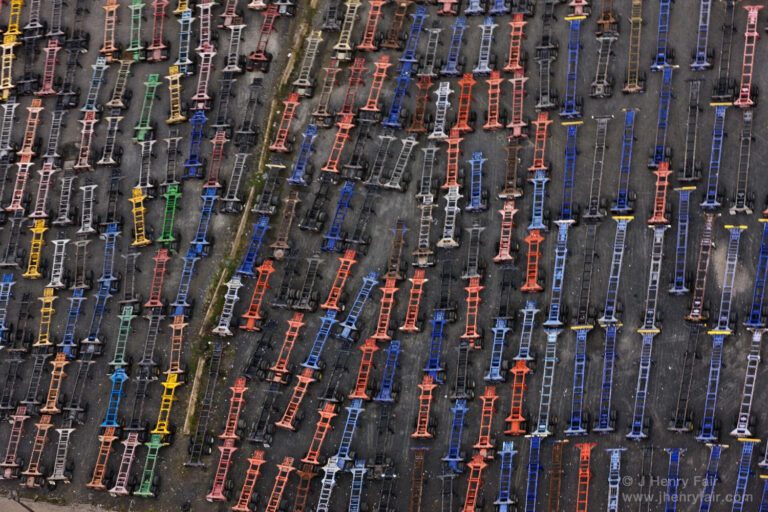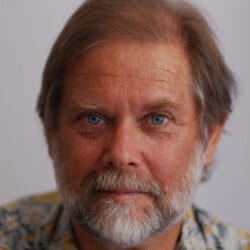Many Buddhists—as well as many non-Buddhists!—have raised concern and alarm about the climate crisis and other crises facing our society and our world. Clearly, we need to take urgent action. As Buddhists, we have a pressing moral obligation to do what we can to relieve the suffering of all beings on the planet, both now and in the future. Our hearts yearn to make things better.
And clearly much of the climate change disaster is caused by economic activity. If you graph carbon dioxide emissions and industrial output over a long period of time, the two graphs look pretty much identical. The development of large scale, fossil-fuel burning industries was accompanied, in Western societies, by the rise of large corporations, global markets, and a rising emphasis on consumption as a source of well-being. Great wealth has been created, but this wealth has been very unequally distributed, and has often come at the cost of environmental and social sustainability.
We urgently need to change how our economies work—But how?
It’s abundantly clear that we can’t go on with “business as usual.” People and other sentient beings are already feeling the disruptive effects of a set of historical and social developments that, as a whole, have taken far too little account of the effects of our production and consumption on the rest of nature. We urgently need to change how our economies work. But how?
What’s Wrong With the “Replacement Economy” Approach?
One popular idea these days, and including among Buddhist social activists, is what I’ll call the “replacement economy” approach. You can find this spelled out clearly in such writings as David Loy’s chapter, “The Three Poisons, Institutionalized” in Money Sex War Karma, And in Joel Magnuson’s book Mindful Economics. Language suggesting a similar analysis crops up in Ken Jones’ The New Social Face of Buddhism, in the 2002 edited volume, Mindfulness in the Marketplace, and in many other recent works. E.F. Schumacher’s 1973 book Small is Beautiful, was a generative work for Buddhist economic critique, focusing on issues of scale. Today the slogan might be updated to “local is beautiful.”
In the “replacement economy” approach, our environmental and other ills are seen as the inevitable outcomes of values, principles, and institutions that are of the very nature of our current economic system. For example, the problems are said to be caused by market values, profit-maximization, global corporations, consumerism, and a growth imperative—all assumed to be inherent in capitalist or market economic systems. Clearly, then, in order to stop the suffering, a dismantling of the old system is prescribed. It is said that we need to create a brand new replacement.
This new economy, it is reasoned, must be based on values, principles, and institutions that are radically different from—in fact, diametrically opposed to—those that characterize the old system. It should be based on values of compassion and cooperation, the principle of mindful interdependence, the principle of sufficiency, and on institutions that will be, for the most part small, local, democratic, and non-profit. Nothing less than a wholesale change of people’s hearts and the structure of the economy, politics, and society, it is claimed, will do.
The proposal for a replacement economy is neither good economics nor good Buddhism.
I would like to offer a different perspective. I’m afraid that, from my viewpoint as an economist and as a student of Zen, I find this proposal to be neither good economics nor good Buddhism. Concerning economics, rather than being truly radical, it actually buys into some very old stories about “the nature of” our current economic system. Concerning Buddhism, it is at odds with what I’ve come to feel are some very basic and very important insights of Buddhism about ourselves and the world.
First, economics. I initially began studying economics, as an undergraduate, with the idea that an understanding of it might help me do something about global poverty and hunger.
What I was taught, in college and grad school, was consistent with how those who look to replace our economic system characterize the “old economy.” That is, people in our current economy are driven by self-interest. Firms are entities whose essence is to maximize profits. Individuals maximize satisfaction from consumption. Markets are arms-length and impersonal “mechanisms.” I also had to learn a lot of math, since it is taken for granted that understanding the “mechanisms” and “drives” of the economy requires physics-like techniques of analysis.
But perhaps what drew me further into the study of economics was the same thing that later drew me to Zen: a tendency to entertain doubt, trying to look afresh at the world with a “don’t know mind.”
And so I became curious about how economists figured out that self-interest, competition profit-maximization and so on were the fundamental laws and principles underlying economic activity. All that I, or anyone else, can directly observe are specific, concrete, historically contingent, emergent realities—as Buddhists should know. So how did economists get a handle on the invisible, intangible, essential, persistent nature that underlies these phenomena? In general, we economists don’t like to talk about where our assumptions come from. My explorations took me into many areas, from contemporary corporate law, to the history and philosophy of science. And what I discovered is that economists made this stuff up. Really.
In Zen practice, we are encouraged over and over to be intimate with what is actually in front of us, and to develop a healthy suspicion about the stories we endlessly create on top of what we see. The whole concept of the inherent nature of our current system lies squarely in the realm of story.
Let’s just look at one example: the common belief that corporations must maximize profits.
The common belief that profit-maximization is mandated by law is simply wrong. Corporate charters state the purpose of business as running a business, and you won’t find a word about profits or returns to shareholders in them. Nor do shareholders regularly force corporate executives to act in their interests, by bringing lawsuits against them, as is sometimes asserted. The courts regularly apply the “business judgment rule” that pretty much leaves decision-making to the executives. For a good explanation of these points, see legal scholar Lynn Stout’s book The Shareholder Value Myth. Nor, in many cases, does intense market competition, in goods markets or capital markets, force companies to pursue every last dollar of profits. Large parts of the economy are dominated by relatively few firms, and many firms fund expansion from retained earnings, leaving them with a much wider degree of choice than you might expect.
The idea that firms are always running after the last dollar of profits was also not derived from observation of actual businesses. Some corporations are more oriented towards innovation, or expansion, or maximizing CEO compensation. Others focus on preserving a tradition, serving a community, or providing a beneficial, quality product. Still others are rather a mess and don’t seem to effectively pursue any goal at all.
Economists invented the notion of profit-maximization. Why?
In Zen practice, we are encouraged over and over to be intimate with what is actually in front of us, and to develop a healthy suspicion about the stories we endlessly create on top of what we see. The whole concept of the inherent nature of our current system lies squarely in the realm of story.
Economists have always wanted to be more like high-status physicists, than like lower-status sociologists. The dogma of “profit maximization” allows us to analyze “the firm” as though it were an autonomous entity that finds the highest point on its mathematical profit function. This is much easier than dealing with corporations as complex social organizations involving many different people working together. It avoids noticing that their leaders and workers may have a multiplicity of goals. It avoids having to recognize that businesses have unique cultures and histories.
And why has economists’ fanciful theory had such staying power? I think part of the explanation, especially for the image’s popularity, has to do with power. The standard story, and its obfuscating cloak of mathematics, can be used to justify greed and silence opposition. But there’s another layer—a gendered layer—to the explanation as well. What economists chose to notice in economic activity was elements of competition, self-interest, autonomy, rationality, precision, and mechanism. What was ignored? All the equally present elements of cooperation, other-interest, connection, emotion, complexity, and sociality. Notice that that the former have an aura of masculinity and toughness about them, while the latter seem more soft, more feminine. In a sexist culture, they are easily dismissed as of lesser importance.
It is also worth noticing that the core theories of the discipline have treated the economic contributions of the natural environment in a way that is exactly parallel to its treatment of women’s traditional unpaid work of maintaining a home and caring for children, the sick and the elderly. Natural resources just “show up” on the scene when needed for production, require no maintenance, and disappear when no longer needed. Issues of resource depletion, degradation, or waste disposal do not appear in the core theory. Workers, likewise just show up and disappear. The traditional work of women in raising children, maintaining workers, and caring for the elderly do not appear in the core theory. Both natural and caring processes have been assumed to go on infinitely, effortlessly, and silently, in the background.
Profit Maximization and Other Popular Myths
“Profit maximization” is not the only idea invented by economists. Let me just briefly mention a few more mythical creations. A “free market” has never existed, and could never exist. Markets are totally entwined with government and other forms of social regulation. Neoliberal or “market fundamentalist” doctrines are, in practice, mostly ideological smoke screens for power grabs. “Imperatives to grow” are also a fiction, whether we are talking about individual firms or larger economies. Episodes of non-expansion or contraction are common occurrences, and do not necessarily lead to collapse. The degree of “consumerist” values displayed in capitalist societies is historically and culturally variable. For example, “planned obsolescence” didn’t become common until well into the 20th century. (If you’re my age, you can remember when the useful life of a telephone could be measured in decades.) There are, in fact, many “capitalisms,” depending on where and when you look, not just one. Cooperation and trust, not just “self-interest and competition,” are essential to any economic system. If you can’t cooperate with your suppliers or coworkers, how can you ever create anything? If you can’t trust who you’re dealing with, how can you ever make a market transaction? Is greed the first thing on your mind when arranging your child’s daycare? A regard for ethics is absolutely required for sustained business and market functioning. Modern capitalist economies have probably functioned as well as they have, so far, only to the extent that many people in their daily lives have not bought into the “greed is good” mentality. I’ve explored these myths and their consequences in Economics for Humans.
Cooperation and trust, not just “self-interest and competition,” are essential to any economic system.
So, to recap my first point, I think the “replacement economy” approach, that prescribes replacing the current economy (characterized by bad principles) with a new economy (characterized by good principles), has gotten its facts wrong. It has made a category error, or fallen into the “fallacy of misplaced concreteness.” It has taken abstract ideas about what “the economy” is (as invented by economists), and confused them with the actual current economy.
If we fully recognize this category error, we should change the way we talk about our economy. You have probably seen the terms “corporatization” and “market values,” used as shorthand for the abstract values of narrow financial interest, greed, shallowness, treating people as objects, and general evilness. Yet, when we look deeper, we see that these values are not intrinsic to markets and corporations. Nor, by the way, are they unknown in non-profit, governmental, and cooperative organizations.
When Corporations Behave Like Rats
So I would advocate shortening “corporatization” to “ratization” when we are referring to dehumanizing, perverse actions. Corporations can (and sometimes do) also choose otherwise. Acting like a rat is a choice, not a mandate. And instead of calling greed a “market value,” we could call it a “rat value.” Not every market transaction is motivated by greed. Acting like a rat is an choice, not a mandate. And not only should we protest the ratization of businesses, we should protest the ratization of nonprofits—including universities—as well.
Furthermore, if we don’t move away from the fallacy of confusing abstract values with actual phenomena, I’m afraid that we actually encourage ratization! Assuming that corporations must act like rats gives corporate leaders an ethical free pass, if they want one: “the system made me do it.” It is also becoming a self-fulfilling prophecy. When the fallacy is repeated over and over, in economics classrooms, in the media, and even in Buddhist social activist writing, it encourages people to believe that greedy, opportunistic behavior is not only acceptable in business, but expected. If we then see more rat-like behavior, the blame is partly on us.
Now, you might come up with a counterargument, pointing to any of the very many (distressingly) true stories of abusive and oppressive corporate behavior. These, you might say, prove that corporations have a fundamentally negative effect on the world. But if this is your approach, you might want to reflect on how you would defend Buddhism to a hard core secularist. Your secularist friend can trot out endless stories about abusive and oppressive actions by religious groups, from the medieval Christian Crusades to the contemporary Islamic State—and not forgetting the recent anti-Hindu, Buddhist-monk-supported, violence in Myanmar. Your friend says that these incidents prove that religion is a fundamentally negative influence on the world. How can you reply, except to say that your friend doesn’t see the whole picture?
Why the Replacement Economy Model is Contrary to Buddhist Principles
What about Buddhism and the “replacement economy” model? I believe that that model is not, actually, very consistent with Buddhism’s tenets and values.
Buddhism tells us that ignorance—sometimes translated as “certainty”—is one of the three poisons that adds to suffering. It advises us to keep doubting, keep looking at things with a “don’t know” mind. We can take up the economy as a koan, and perhaps relax some of our prior beliefs.
Buddhism tells us that one of the basic marks of existence is non-self, or that all phenomena lack any essential nature. Yet the “replacement economy” story is firmly based on a set of beliefs about the “essential nature of capitalism.” Releasing those beliefs allows us to recognize that our current economy is emergent and ever-changing—just like everything else.
Try as we might to resist it, the “replacement economy” model tempts us towards another of the three poisons, anger. It is very difficult not to be consumed by anger, when observing, for example, ExxonMobil’s disinformation campaign about the contribution of fossil fuels to climate change. It’s very easy to see ExxonMobil as motivated by greed, and our own anger as righteous. Yet we are told that we also have beginningless greed, that anger is a poison, and that “us versus them” thinking arises from a deep delusion of separation. Perhaps we can soften around some of this if we recognize that the impetus to positive change can come from both inside and outside of organizations. When we engage in activism such as letter-writing campaigns, boycotts, and shareholder resolutions—as we should—we could recognize that if change happens it is likely because we’ve had allies inside all along. If we tend to see the people “inside the system”—and especially “corporate elites”—as no more than weak, deluded, role-playing robots, we deny them their humanity.
And if we think that “they” are uniquely motivated by greed, and we are not, we deny our own humanity. Greed, we learn in practicing Zen Buddhism, can come in all sorts of varieties, with the greed for money only being the least subtle one.
If you are like me, you not only want climate change to stop, you want child abuse, unemployment, sexism, racism, war, the arms trade, and nuclear weapons to go away. I have long struggled, within myself, with a sense of personal failure that I have not been able to make any of this go away. And this is tightly linked to a sense of heroic over-responsibility that I should be able to do so. So it came as a great revelation to me when, during zazen practice, I realized that my desire to “be good” is, itself, another variant of greed. It’s not that I simply aspire to do good actions, I have extra desires—demands, really—that I pile on top of that aspiration: “I want to feel good about myself,” “I want to be virtuous,” and “I want to be free of guilt.” When I have my desire to feel good about myself front and center, when I’m trying hard to preserve my identity as a good person, it really gets in the way. The requirement that I try to put on the universe—“Be such that I can be good!”—separates me from it.
Keeping our eyes on that imagined “good economy,” created by “us, the good folks,” can cause us to overlook what we can do, and need to do, here and now.
So, while our hearts yearn to make things better, I think we need to be very careful about how we go about acting on this, and keep our actions well-informed by Buddhist insights. The “replacement economy” vision of a “new economy” based purely on principles of sufficiency and cooperation, strikes me, I’m afraid, as more of a harmful distraction, than an inspiration. Much as we would love to imagine that we could live in an economy that is infinitely sustainable, equitable, and oriented to true well-being, it seems to me that this aspiration comes perilously close to denying the Three Marks of Existence. We want a “new economy” with a good essential nature, though we have been told that all phenomena lack any essential nature (anattaa). We put our hopes on a idealized end to suffering, when our Buddhist teachings tell us that suffering (dukkha) is ever-present. We may envision society enjoying the “replacement economy” as a sort of end point or culmination of human social justice endeavors, while Buddhism teaches us about the inescapability of impermanence and change (anicca). Keeping our eyes on that imagined “good economy,” created by “us, the good folks,” can cause us to overlook what we can do, and need to do, here and now.
I am also doubtful about its pragmatic possibilities, because so much of the plan seems to me to depend on a faith in the inherently redemptive power of small-scale, non-profit, and/or spiritually-directed institutions. I am afraid that I do not believe that any sort of institution—business, government, non-profit, local enterprise, community, family, or, alas, even a Buddhist sangha—has an essential “nature” that makes it automatically serve good ends. The newspapers every day carry stories of domestic violence. Sanghas are far from immune to scandals over money and sex. The three poisons are everywhere.
Buddhist teaching tells us that suffering and impermanence are fundamental marks of existence. Recognizing these marks doesn’t at all mean that we sit on our hands and don’t do anything. But I think we want to look twice at a plan that is built around imagining an existence without them.
So what can we do? I came to Zen hoping that it would make me happy, and good, and certain about my decisions, forever…and it has not quite worked out that way. But Zen practice is gracing me with something much better. I am developing a way in which I, without becoming somebody else, can live in this world, without demanding that it become something else. I suggest we look into doing this together.

Facing climate change, I suggest, is a situation in which we have no hope of feeling good about ourselves. We have no hope of creating an ideal society. Right here is where we are, and only by facing into this reality can we respond.
I believe we should aspire to make things better, but not be too rigid about the specifics, or too greedy about having things go our way. I’ve learned to be suspicious of the thought, “If only people would listen to me and do things my way, things would be great!”
How to Act for Systemic and Structural Changes
We need changes in our hearts. And then we need to take these out into the world. While we do not need to swap our “old economy” for a diametrically opposed “new economy,” this doesn’t mean that we don’t need “systemic” and “structural” changes. But they need to be at a different level. Within any nation, community or organization are systems and structures that shape the flows of information, the values, the decisions, and the patterns of activity. This is where we can take action.
Corporations need to develop systems that gather information about the environmental and community impact of their actions, and structure themselves so that responsible decision-making can be based on this information. National governments need to create regulatory structures, and systems of taxation, that move us away from fossil fuels and planned obsolescence, and towards sustainability. We need to restructure our cities, farms, energy generation, and transportation structures, transforming how we consume and how we commute. As individuals, we need to act from wherever we are to make these changes happen.
Take the Economy as a Koan
In conclusion, there seems to be widespread certainty out there about the principles and laws that (presumably) drive our current economy. My invitation here is to take the economy as a koan, and inquire more deeply into what is, in fact, in front of us. When we do, I believe we can recognize that economies, markets, and corporations, like human individuals, or like any other institutions, have no essential nature. They arise contingently, historically, and in deep interdependence. I believe that this recognition opens many possibilities for wise, compassionate, pragmatic, and deeply engaged action, in the messy and painful world here-and-now.
(A video of this talk is available at Buddhism, Climate Change, and Economics: Video)
Based on a talk given at Harvard Divinity School, sponsored by the Religions and the Practice of Peace Initiative, on Feb. 18, 2016.








